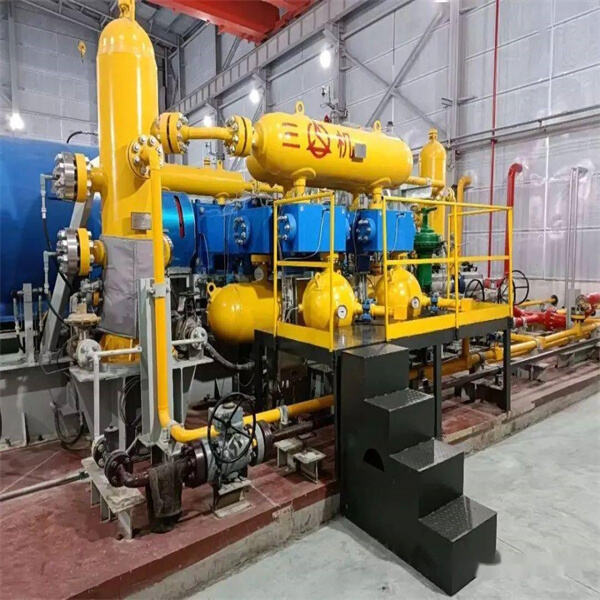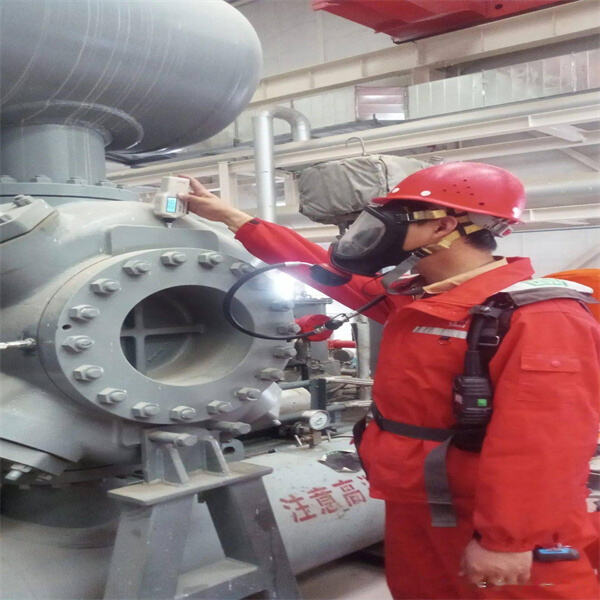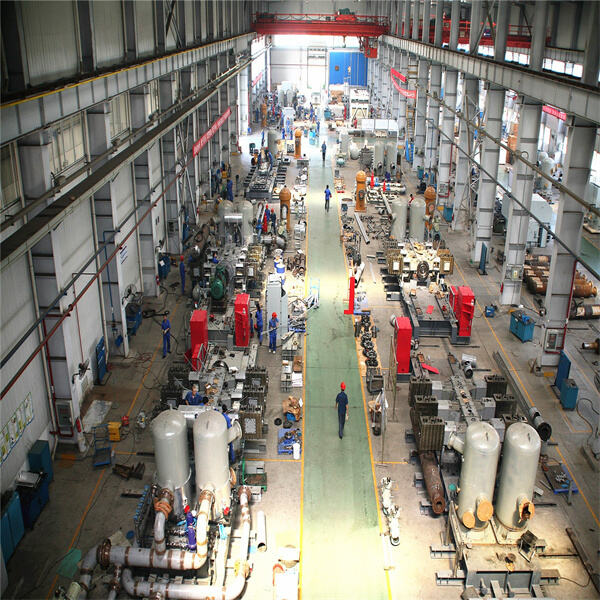Kompresory metanového plynu sú jednoducho kľúčovým nástrojom na vyťaženie zemného plynu z hĺbok zeme a dopravu ho do našich domov! Tieto kompresory tiež pomáhajú presunúť plyn cez potrubia. Takže, dnes sa dozvieme viac o tom, ako kompresor metanového plynu fungujú, a prečo je to tak zaujímavé!
Keď sa zemný plyn objaví hlboko v zemi, musí cestovať dlhú vzdialenosť, kým sa dostane na svoje miesto určenia. A práve tu prichádzajú do hry kompresory metanového plynu! Tieto zariadenia pomáhajú pohonovať plyn cez potrubia stlačením potrubia. Je to podobné ako keby ste vysielať zubné krém z tuby - kompresor pomáha plynu sa voľne pohybovať.
Aby kompresory metanového plynu fungovali správne, musia byť pravidelne údržbované. Kompresory vyžadujú pravidelné kontroly, podobne ako čistenie zubov na zachovanie ich kondície. To môže zahŕňať hľadanie únikov, kontrolu funkčnosti všetkých častí a ich čistenie na udržanie ich v najlepšej kondícii.

Výhody metanového kompresoru v plynarenských zaobchádzajúcich miestach. Znížia čas a úsilie tým, že zabezpečujú rýchly a hladký pohyb plynu cez potrubia. To umožňuje spracovať a dodávať viac prirodzeného plynu tam, kde je najväčšia poptávka. A kompresory môžu celý proces urobiť menej štvorcovým a lacnejším.

Pri výbere metanového kompresoru sú niektoré kľúčové otázky, na ktoré treba pamätať. Veľkosť a výkon kompresora je prvou vecou, na ktorú by ste mali myslieť, aby ste sa ubezpečili, že dokáže presunúť požadované množstvo plynu. Musíte tiež uvažovať o materiáli, z ktorého je vyrobený, a o tom, ako jednoduché bude jeho údržba. Môžete overiť, či funguje dobre, tým, že si vyberiete správny kompresor.

Kompresory metanového plynu sú nevyhnutné na to, aby sa zemný plyn dostal tam, kam ho treba, ale mali by sme tiež zvážiť ich celkový vplyv. Určité kompresory môžu uvoľňovať škodlivé plyny do vzduchu, ak nie sú správne údržbované. Preto je naozaj veľmi dôležité, aby boli kompresory v dobrom stave a neboli škodlivé pre životné prostredie.
Už viac ako 10 rokov sa pohybujeme v medzinárodnom obchode a slúžime zákazníkom po celom svete. Ponúkame lokálne služby po celom svete spolu so svojimi metánovými kompresormi. Doterajšie sme sa vyvinuli v riešení jedinečných potrieb klientov a riešení zložitých problémov na rôznych trhoch.
Poskytujeme komplexné riešenia pre všetky vaše potreby v oblasti priemyselnej automatizácie. Viac ako desaťročná skúsenosť nám umožňuje vyvíjať vlastné produkty – kompresory metánového plynu – a zároveň distribuovať vlastné výrobky a zastupovať najlepšie medzinárodné značky. Náš široký portfólio pokrýva rôzne odvetvia a zabezpečuje prispôsobené riešenia, ktoré vyhovujú potrebám každého zákazníka.
Naše zariadenia na spracovanie oleja a benzínu pochádzajú od najlepších čínskych výrobcov a sú zamerané na kompresory metánového plynu a inovatívny dizajn. Každý výrobok je starostlivo vyvinutý a vyrobený odborníkmi z výskumu a vývoja (R&D) i výroby, aby prekročil očakávania zákazníkov a stanovil nové štandardy v danej oblasti.
Náš tím viac ako 500 odborníkov sa zaoberá kompresormi metánového plynu. Od predaja až po servis poskytujú naši odborníci odborné poradenstvo na každom stupni spolupráce. Okrem toho ponúkame aj prehliadky na mieste, vítame zákazníkov v Číne a zabezpečujeme otvorené komunikačné kanály, čím podporujeme trvalé vzťahy a zrýchľujeme rozvoj odvetvia.